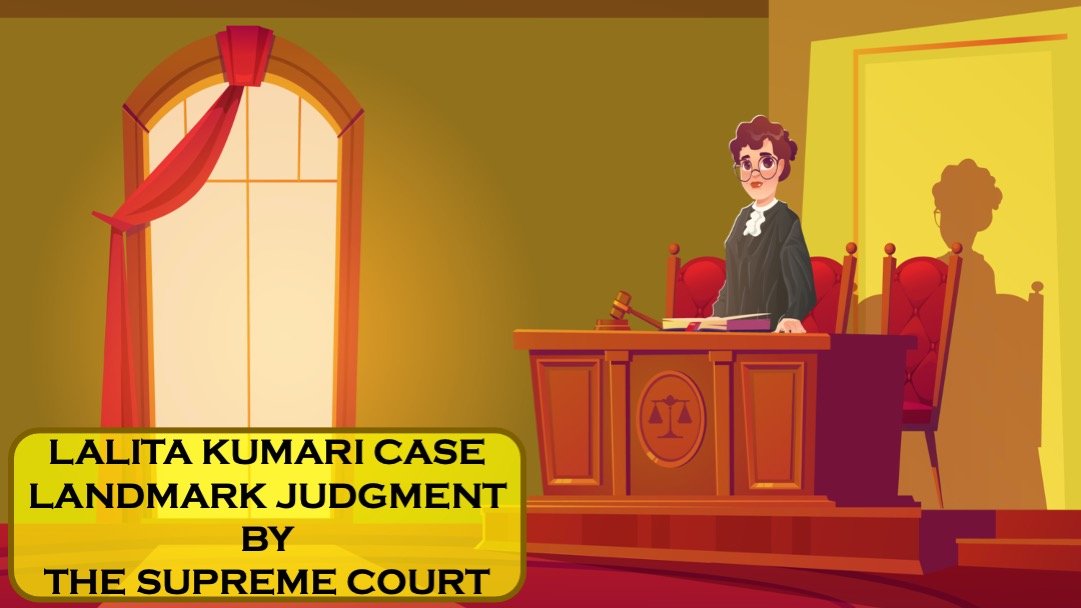The Lalita Kumari case landmark judgment by the Supreme Court of India on the mandatory registration of First Information Reports (FIRs) by the police. The case arose from an incident in which a woman named Lalita Kumari was allegedly abducted and raped by four men, but the police refused to register her complaint.
In 2008, Lalita Kumari filed a writ petition in the Supreme Court seeking the registration of her complaint by the police. The Supreme Court, in its judgment in 2013, held that the police must register an FIR in cases where there is information disclosing a cognizable offence, and that the police cannot conduct a preliminary inquiry before registering an FIR.
The court also held that the police must record the reasons for not registering an FIR if they have reasons to believe that no cognizable offence has been committed. This ruling established the principle that the police cannot refuse to register a complaint simply because they do not believe the allegations made by the complainant, and that they must register an FIR if the allegations disclose a cognizable offence.
The Lalita Kumari case has been seen as a significant step in ensuring that the police carry out their duty of registering FIRs and investigating crimes in a more transparent and accountable manner. It has helped in preventing police officers from avoiding their responsibility of registering FIRs, and has enabled victims to have a better chance of getting justice.
GUIDELINES UNDER LALITA KUMARI CASE
The Lalita Kumari case established certain guidelines that police officers must follow while dealing with complaints of cognizable offences. These guidelines are as follows:
Registration of FIR:
If a person approaches a police officer with a complaint that discloses a cognizable offence, the police officer must register an FIR and begin an investigation immediately.
No preliminary inquiry:
The police officer cannot conduct a preliminary inquiry before registering an FIR in such cases.
Reasons for not registering FIR:
If the police officer decides not to register an FIR, he/she must record the reasons in writing and provide a copy of the same to the complainant.
Receipt of information by a postal or telephonic message:
In cases where the information relating to the cognizable offence is received by post or telephone, the police officer must reduce it to writing and proceed in accordance with the guidelines above.
Recording of information in register:
The police officer must record the information received by him/her in a register, which is commonly known as the Station Diary.
Copies of FIR:
The police officer must give a copy of the FIR to the complainant free of cost.
Investigation:
The police officer must investigate the case promptly and diligently, and take necessary steps for the collection of evidence.
Conclusion
The Lalita Kumari case landmark judgment guidelines have been seen as a significant step in ensuring that the police carry out their duty of registering FIRs and investigating crimes in a more transparent and accountable manner. These guidelines have helped in preventing police officers from avoiding their responsibility of registering FIRs, and have enabled victims to have a better chance of getting justice.

























